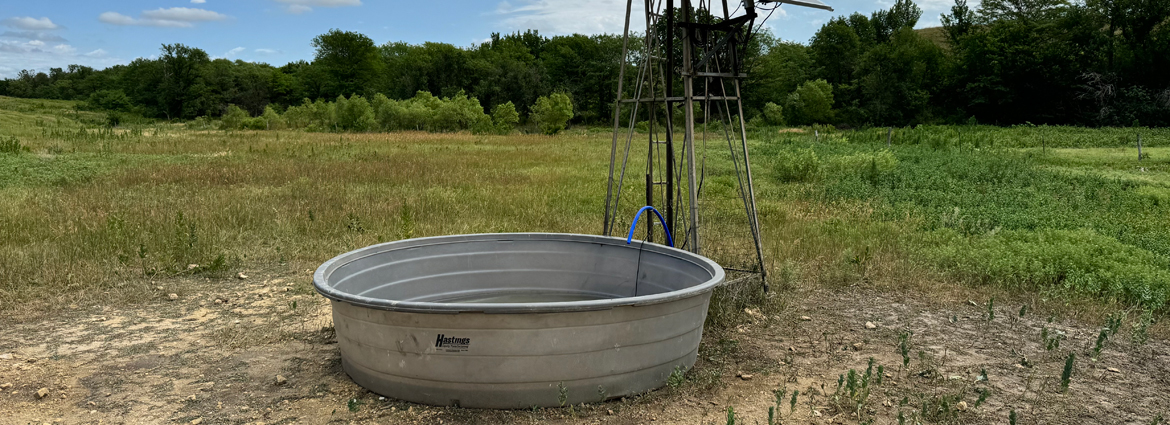
Dog Days of Summer?
Kansas has been experiencing an intense heatwave, with temperatures this week soaring well above 100 degrees. The forecast for next week looks very similar, with the National Weather Service forecasting an Excessive Heat Warning with temperatures nearing 105-108.
This sudden spike in heat has created a perilous situation for cattle. Ranchers are focused on several critical aspects of their operation: 1) ponds and well water. With long periods of drought and high heat, farmers in north central Kansas are already dealing with low levels of pond water and some water wells going dry. 2) Another looming concern is the availability of grass and feed. During drought conditions production of pasture grasses is lower, and drought also impact a farmers ability to raise feeds such as sudan grass and millet. And 3) If you happen to have grass, it is most likely dry grass. This can cause significant variability in its nutritional content. It's essential for cattle producers to recognize the importance of proteins and minerals, which are crucial for muscle development, digestive health, energy, and overall health.
The impact on crops has been equally devastating. The extreme heat has accelerated evaporation, further stressing water resources already strained by ongoing drought conditions. Crops like corn and soybeans are already suffering and may already be in jeopardy. More resilient crops like grain sorghum, are in a critical phase of setting on heads, and need water. For Kansas farmers, the primary concern is trying to generate enough bushels while market prices continue to plummet. The corn belt is forecasting 181 bushels per acre, and markets have reacted with large number of put positions. As prices slide and drought sets in, farmers struggle to generate enough bushels/revenue to offset inflationary input costs. This not only affects the local economy but also has broader implications for those that make a living on the family farm.
As the climate continues to exhibit more extreme weather patterns, the agricultural community in Kansas is facing a challenging adaptation period. Strategies for mitigating heat stress in cattle and developing more resilient crop varieties are becoming increasingly vital. Recent events underscore the urgency for sustainable farming practices and water conservation measures to safeguard against future heat-related losses.